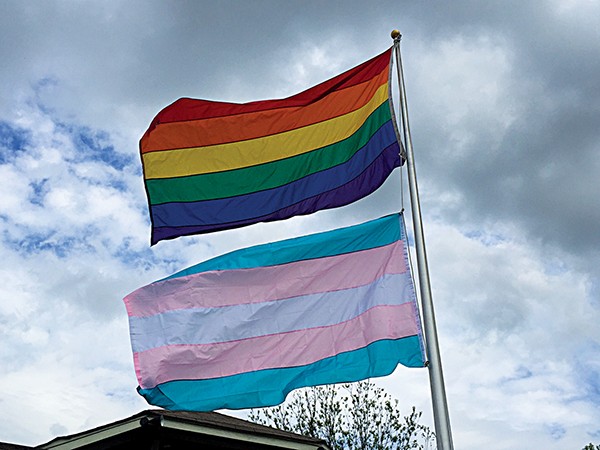This story is co-published with MLK50: Justice Through Journalism, a nonprofit Memphis newsroom focused on poverty, power, and public policy — issues about which Dr. Martin Luther King Jr. cared deeply. Find more stories like this at MLK50.com. Subscribe to their newsletter here.
In the past week, two federal lawsuits have been filed against the state’s new bathroom signage law, which takes effect today. The law applies to businesses and other places with multi-stall bathrooms that allow people to use the restroom of the gender with which they identify.
The businesses are required to post signage with the following state-mandated language: “Notice: This facility maintains a policy of allowing the use of restrooms by either biological sex, regardless of the designation on the restroom.”
One lawsuit was filed Friday by the American Civil Liberties Union and the ACLU of Tennessee. The plaintiffs are Nashville-based restaurateur Bob Bernstein, who founded and manages Bongo Roasting Co., and Kye Sayers, who owns Sanctuary, a performing arts venue and safe space for trans people in Chattanooga.
The other was filed Wednesday by Mike Curb, owner of Curb Records Inc. in Nashville and properties open to the public.
Here are six things you should know:
- Their main argument: The law violates the plaintiffs’ First Amendment rights.
The ACLU suit argues it violates plaintiffs’ freedom of speech by legally forcing them “to communicate a misleading and controversial government-mandated message that they would not otherwise display.”
The businesses “do not agree with this characterization of their policies, and they do not want to convey the Tennessee General Assembly’s controversial and stigmatizing message to customers, clients, and staff.”
- Both suits ask the court to declare the law unconstitutional and unenforceable.
They call for the court to preliminarily stop state and local officials from enforcing it and say that judgment should eventually be made permanent.
- Plaintiff Mike Curb is a former Republican lieutenant governor of California.
He served in that role from 1979 to 1983 under former Democratic Gov. Jerry Brown. Curb was also co-chairman of President Ronald Reagan’s 1980 campaign, according to a Curb Inc. press release denouncing Tennessee’s anti-trans legislation, which was sponsored and backed by Republicans.
Along with civil rights activist Harvey Milk, Curb worked to stop California’s Briggs Initiative in 1978, which would have mandated firing teachers who were gay or in support of gay rights.
A coffee menu at Fido coffeehouse and restaurant in Nashville is decorated with LGBTQ flag colors in June. The owner of Fido, Bob Bernstein, is one of the plaintiffs in a lawsuit filed against Tennessee over its new anti-trans bathroom law. Photo courtesy of the ACLU of Tennessee
- Curb’s lawsuit argues that the law was a solution in search of a problem.
The law “was not enacted to address any real problem or actual public need,” the suit reads, relying on the words of the law’s House sponsor, Rep. Tim Rudd (R-Murfreesboro), to bolster its argument.
When asked during House floor debate by another lawmaker if there’s any other locality with a similar law, Rudd said he hadn’t researched it but saw a need in Tennessee. “It’s very shocking and can endanger people if they walk into a restroom that’s marked men or women and the opposite sex is standing there. It could scare them. It could provoke violence.”
- The law defies medical guidance on sex and ignores the existence of intersex people, according to the ACLU lawsuit.
By using the phrase “biological sex,” the law is unclear and intentionally discriminatory.
“Biological sex” is never defined in state law, and medical professionals say a person’s gender identity should be used for medical and legal purposes, the lawsuit says.
The lawsuit also argues that the law ignores the existence of intersex people by using the language “either biological sex.”
- Both lawsuits say the signs will hurt businesses by driving away customers and inciting fear.
Posting signs at Curb’s businesses “risks driving away customers and visitors that they want to attract by forcing them to convey a message that conflicts with their corporate values of inclusion, diversity, equality, and respect for all people,” the lawsuit says.
